#common humanity
Text
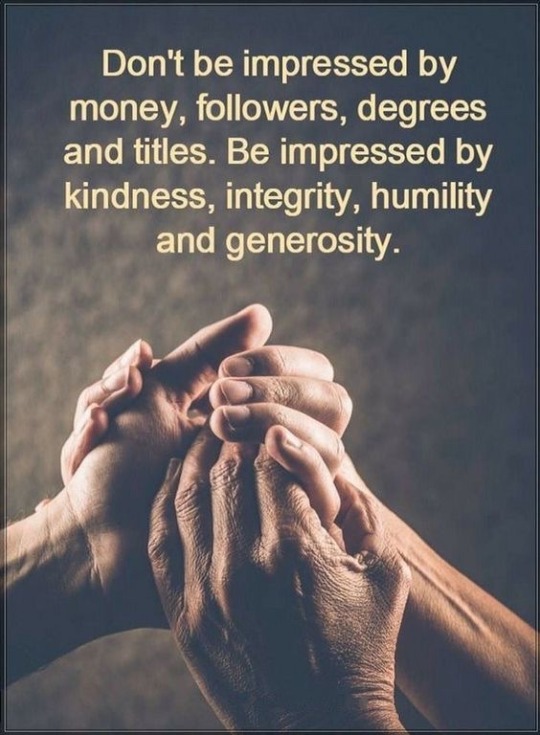
#mentoring#positivity#motivatedmindset#focus#encouragesomeone#humanity#think more#self reflection#inspiration#kindness#motivation#innerstrength#believeinyourself#civility#common humanity
122 notes
·
View notes
Text
It is really, really easy to fall into the error of seeing more opponents than allies. Social media algorithms make this easier, because they prioritize engagement, and rage clicks count.
It's not healthy.
There's lots of people on all sides of this issue, and it's not clear cut what perspective has the numeric advantage.
Just look at the comments under any post from Doctors Without Borders that comments on the situation in Gaza. Full of people calling them "doctors without morals" etc because they dare to care about civilians in a war zone.
I know it's easy to think that "your side" has it worst. Please, resist the urge. There's more than enough hurt and anger to go around.
Palestinians are having dog shit thrown at their homes, in America, for having a Palestinian flag visible from the street.
Synagogues and Jewish community centers are being vandalized with nazi imagery, in America, for existing while Jewish.
We're all hurting. We're all angry. No one is having a good time. Try to see the people you disagree with not as horrible, evil monsters, but as people with a different perspective. You may not be able to engage with them in constructive ways, but you can hold space for shared humanity.
We have more in common than you might think.
51 notes
·
View notes
Text
Gratitude JournalSOLAR ECLIPSE!!!
Watching the sunset eclipse yesterday was amazing. I was at work at my retail job, but not only did my boss provide eclipse glasses for those who didn't have them, he didn't care that we went out periodically to look at it as it slowly got closer and closer to totality.
When totality was minutes away, we all abandoned our posts and stood outside the doors and watched. We saw groups of employees at the nearby McDonald's and Taco Bell doing the same. One of our shift leads showed up over an hour early to join us.
Some customers joined us as well. One who had already made his purchase but didn't want to get in his car. Another who had just pulled in with his wife said, "I should be smoking a joint for this" and proceeded to light one up. (Not currently legal in Texas, but it was a fucking solar eclipse, man! Who cares??)
I got some pics during totality, but my phone decided to "fix" the no light issue. It was actually nighttime dark when I took these pics (note the bright planet off to the right):
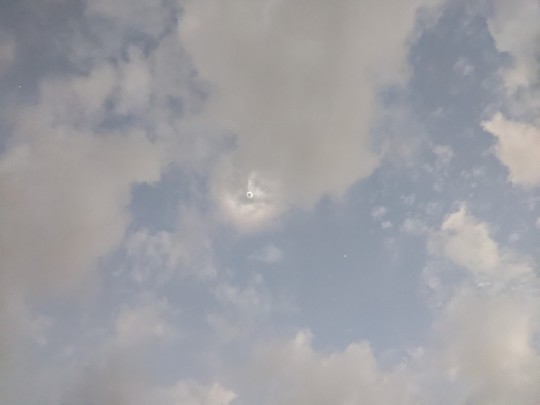
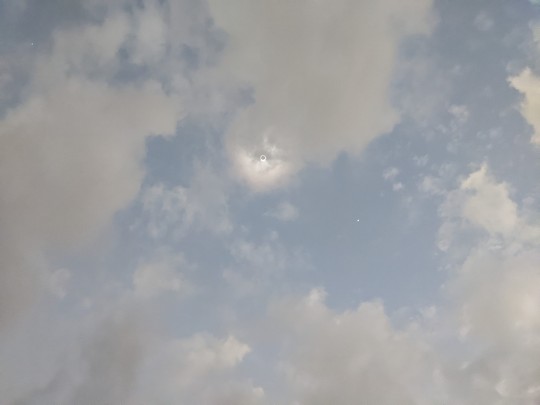
Here it is zoomed in:

My husband was able to adjust his phone settings, so here are some of his pics:
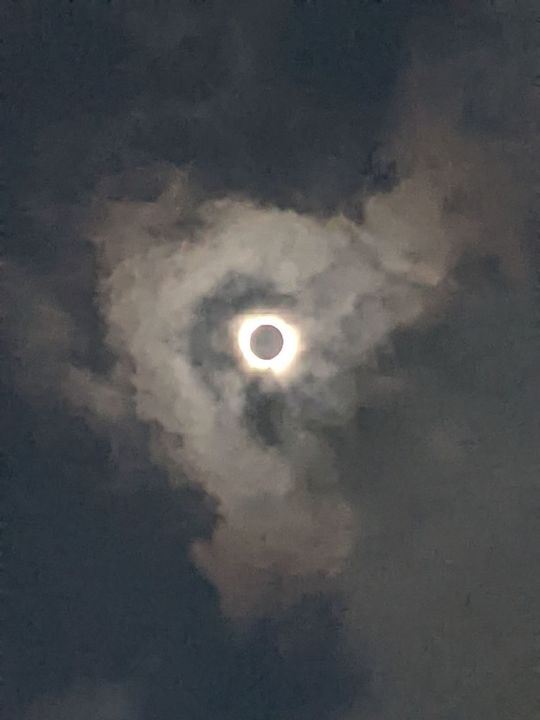
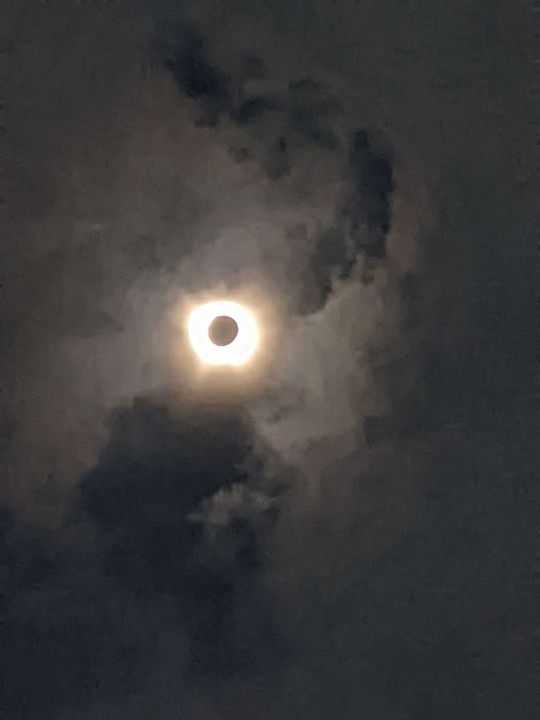


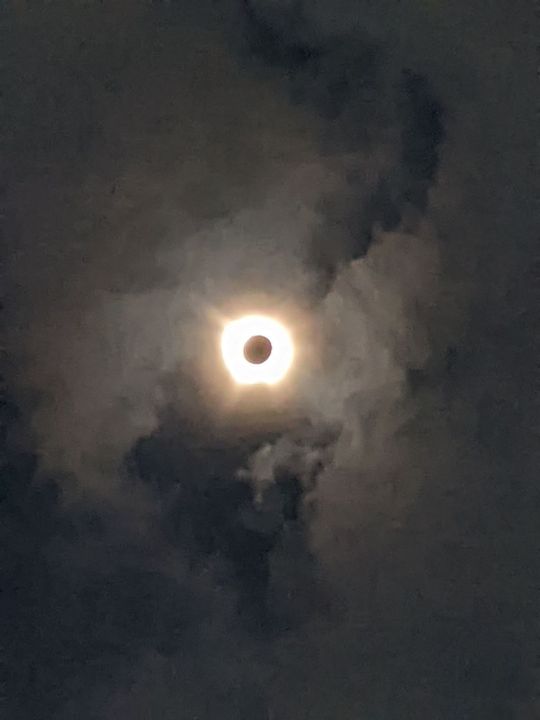

Not kidding: DARK AS NIGHT! At 1:45 pm!
When totality happened, the folks from the other stores and restaurants all cheered. It was just so incredibly amazing to share this experience with people. It's like, what do all humans have in common? We love celestial events like this, and for 10 minutes we can all attend together, totally enraptured by this heavenly occurrence.
I was still all abuzz from it well into last night, and this morning, too. This was one of the most amazing experiences of my life, and I'm so lucky that I live in the path of totality.
(My in-laws are in the path of totality for the next one in 20 years. I'm planning now to be there.)
4/9/24
4 notes
·
View notes
Photo


youtube
Glenn Loury: The Case for Black Patriotism
Frederick Douglass, the escaped slave and great abolitionist, in a famous speech of 1852 titled “What to the Slave Is the Fourth of July?,” asked America whether he had a share in the nation’s civic inheritance. Douglass was cautiously hopeful that America might be faithful to its founding principles and grant liberty and equality to his people. But he had to plead with his audience to consider the gravity of the times; he had to indict his country for not standing up to its own ideals.
Today we stand 170 years later. Douglass’s criticism of America remains fashionable, but many Americans seem to have forgotten what it was about America that Douglass wanted to be a part of. When we talk about race and America, we must ask whether the standoffishness exemplified, by, for example, the “America ain’t so great, and never was” posture popular on campuses and in newsrooms, truly serves the interests of black Americans. The narrative we blacks settle upon about the American project is fundamentally important. Is this, basically, a good country that affords boundless opportunity to all who are fortunate enough to enjoy the privileges and bear the responsibilities of American citizenship? Or, is this, basically, a venal, immoral, rapacious bandit-society of plundering white supremacists founded in genocide and slavery, and propelled by capitalist greed and unrepentant racism?
I wish to make the case for unabashed black patriotism—for the forthright embrace of America by black people. Our birthright citizenship in this great republic is an inheritance of immense value. Our Americanness is much more important than our blackness.
Of course, there is some warrant in the historical record for both sentiments. African slavery flourished at the time of the founding, true enough. And yet, within a century of the founding slavery was gone and people who had been chattel became citizens of the United States. Should equality before the law have taken another hundred years? Should my ancestors have been enslaved in the first place? No and no. But we must not forget that slavery had been commonplace since antiquity. Emancipation, the freeing of slaves en masse as the result of a movement for abolition—that was a new idea. It was a Western idea, brought to fruition in our own United States of America. It would not have been possible without the philosophical insights and moral commitments cultivated in the West during the Enlightenment—ideas about the essential dignity of human persons.
The founding of the United States of America was a world-historic event by means of which enlightenment ideals about the rights of individual persons and the legitimacy of state power got instantiated for the first time in real institutions. The United States of America fought authoritarian fascism and communism in the Pacific and Europe in the mid-twentieth century. Our democracy, flawed as it most surely is, has been a beacon to billions of people. On our shores, we have witnessed since the end of the Civil War the greatest transformation in the status of an enserfed people that is to be found anywhere in world history. Some 46 million strong, we black Americans have become by far the richest and most powerful large population of African descent on this planet, and it’s not even close. We have access to more than five times the income of the typical Nigerian, the richest nation in all of sub-Saharan Africa.
I am a descendant of slaves and I came up in the 1950s and 1960s on Chicago’s South Side; I didn’t have an easy upbringing, but I was a beneficiary of the civil rights revolution, which made possible for me a life that my forebears only dreamed of. I became an economist and Ivy League college professor. I am a product of the Enlightenment, and I am an inheritor of its great traditions: Tolstoy is mine. Dickens is mine. Newton and Maxwell and Einstein are mine.
We Americans, of all stripes, have a great deal in common, and our commonalities can be used to build bridges, undergirded by patriotism, between black America and the nation as a whole. We all want the same things. We want a shot at the American Dream. We want each generation to do better than the ones that came before it. Connections among groups in America could be stronger if we focused more on the things we have in common than on the things that divide us.
Those who make their living by focusing on our differences believe that there is something fundamentally wrong with the American project. They’re wrong.
They betray the legacy of Frederick Douglass, and we should resist their divisive rhetoric. It is easy to overstate the racial problems facing our country, and to understate what we have achieved.
Join me in valuing the American tradition at FairForAll.org
#Foundation Against Intolerance and Racism#FAIR for All#Glenn Loury#Frederick Douglass#abolition#patriotism#equality before the law#Enlightenment#Enlightenment values#common humanity#liberal values#liberalism#Emancipation#Civil Rights Movement#American dream#inverted exceptionalism#slavery#religion is a mental illness
18 notes
·
View notes
Text
into a community effort instead of a solitary one
The Nerdfighter community, John and Hank Green have taught me so much.
Not only do John/Hank make me laugh, they teach me things. Like, more things than my school does.
John is an AMAZING author, and I really look up to him for that.
He also really inspires me to want to do something with the arts when I grow up. Anyone who puts peanut butter on their face and makes a video is pretty darn cool.
I was introduced to Nerdfighteria by one of my friends, and I haven’t regretted anything. John and Hank have made me laugh when I’m sad, and I really can’t thank them enough. Also, the community is amazing. Although people disagree, it feels really reassuring that all these people, despite all our differences, have something in common.
It really shines positive light onto our community, and I’m proud to be a part of it.
Also we have a gang sign. That’s pretty darn cool.
- NalaWu (phuchess.tumblr)
_______________________________________________________________________
John, Hank, and really the entirety of Nerdfighteria have greatly influenced the way I think about learning and improving my own beliefs and the way in which I share them.
I also appreciate that everyone involved has used social media, which is generally viewed by adults as a waste of time, for a incredible positive purpose. The have turned learning and the use of the internet into a community effort instead of a solitary one.
- Brigid Majmudar
#nfstories#nerdfighteria#nerdfighters#vlogbrothers#community#people#awesome#dftba#learning#proud#role models#common humanity#sharing#caring#better
2 notes
·
View notes
Text
Do not wait for leaders; do it alone, person to person.
Teresa of Calcutta
The future of this earth need not be in the hands of the world’s ‘leaders’. The world is in God’s hands if we are led by God.
Gordon Matthews, in Quaker Faith and Practice 29.01
#mother teresa#quaker#quakerism#human dignity#common humanity#led by God#faith#leadership#politics#solidarity
9 notes
·
View notes
Text
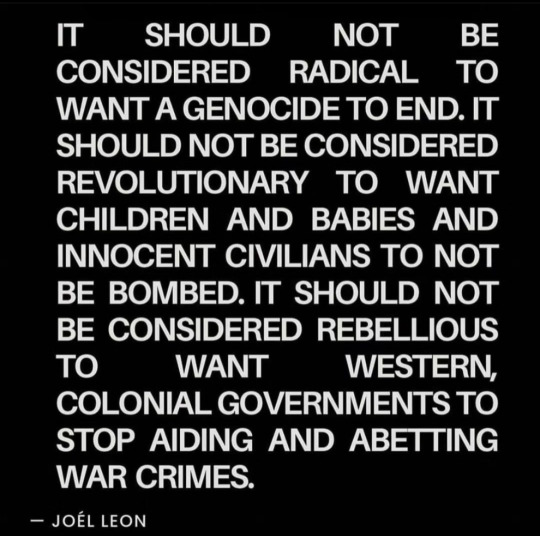
#joél leon#signal boost#humanity#human rights#common sense#common decency#colonialism#imperialism#war crimes#genocide#crimes against humanity#free palestine#free sudan#free congo#free oppressed people globally#congo#sudan#palestine
15K notes
·
View notes
Text

#mentoring#motivatedmindset#focus#encouragesomeone#pedagogy#positivity#humanity#think more#self reflection#kindness#inspiration#believeinyourself#civility#innerstrength#motivation#common humanity#race relations#sociology#contentmatters#helping one another#still healing#critical thinker
8 notes
·
View notes
Text
...The best way to reform society is to reform ourselves. There is of course a great deal done in our own day to reclaim the vicious, to succour the poor, and so on; and nothing is to be said against these efforts when they are the outcome of a humble and sympathising charity. But they are very often adulterated with a spirit of condemnation and a sense of superiority, which on closer inspection is found to be unjust. [In illustration of this, In John 8, the] scribes and Pharisees, when they dragged this woman before Jesus, felt themselves on quite another platform than that which she occupied; but a word from Christ convinced them how hollow this self-righteous spirit was. He made them feel that they too were sinners even as she, and none of them was sufficiently hardened to lift a stone against her. This is creditable to the Pharisees. There are many among us who would very quickly have lifted the stone. Even while striving to reclaim the drunkard, for example, they arraign him with an implacable ferocity that shows they are quite unconscious of being sharers in his sin. If you challenged them, they would clear themselves by vehemently protesting that they had not touched strong drink for years; but do they not consider that the almost universal intemperance of the lowest class in society has a far deeper root than individual appetite; that it is rooted in the whole miserable condition of that class, and cannot be cured till the luxuries of the rich are by some means sacrificed for the bitter need of the poor, and the rational enjoyments which save the well-to-do from coarse and open vice are put within reach of the whole population? Poverty, and the necessity it entails of being content with a wage which barely keeps in life, are not the sole roots of vice, but they are roots; and so long as we ourselves, in common with the society in which we live, are involved in the guilt of upholding a social condition which tempts to every kind of iniquity, we dare not cast the first stone at the drunkard, the thief, or even their more sunken associates. No one man, and no one class, is more guilty than another in this great blot on our Christianity. Society is guilty; but as members who happen by the accident of our birth to have enjoyed advantages saving us from much temptation which we know we could not have stood, we must learn at least to consider those who in a very real sense are sacrificed for us. Among certain "savage" tribes, when a chief’s house is built, slaughtered slaves are laid in pits as its foundation; the structure of our vaunted civilisation has a very similar basement.
Still it is one of the most hopeful features of present-day Christianity that men are becoming sensible that they are not mere individuals, but are members of a society; and that they must bear the shame of the existing condition of things in society. Intelligent Christian men now feel that the saving of their own souls is not enough, and that they cannot with complacency rest satisfied with their own happy condition and prospects if the society to which they belong is in a state of degradation and misery. It is by the growth of this sympathetic shame that reformation on a great scale will be brought about. It is by men learning to see in all misery and vice their own share of guilt that society will gradually be leavened. To those who cannot own their connection with their fellow-men in any such sense, to those who are quite satisfied if they themselves are comfortable, I do not know what can be said. They break themselves off from the social body, and accept the fate of the amputated limb.
William R. Nicoll
#this hits hard#social justice#human rights#social reform#Social work#alcoholism#Poverty#inequality#Injustice#religious hypocrisy#John 8#christian service#a vital warning#addiction#Sin#Guilt#William r. Nicoll#This is very relevant to the world lately#The mystical body of Christ#common humanity#Humility#love thy neighbor#love your enemies#human dignity
1 note
·
View note
Text
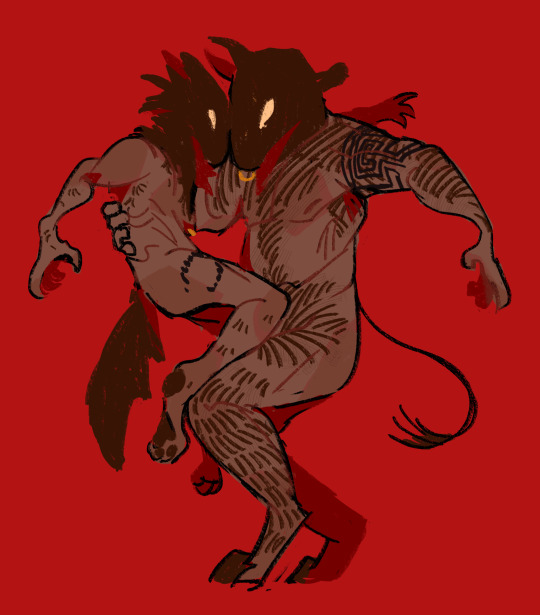
λυκάνθρωπος / Μινώταυρος
#caption is ''lycanthrope / minotaur'' in ancient greek. bc im feeling silly#i know that like really werewolves and the minotaur have nothing in common BUT THEYRE BOTH ANIMAL PEOPLE! u have to#understand. its about the abstraction from humanity while also existing SO close to it.#werewolf#aceart#werewolfisms#minotaur#my art
8K notes
·
View notes
Link
By: Bion Bartning
Published: Dec 2, 2022
Dear Friends of FAIR,
On April 5, 1968, the day after Martin Luther King, Jr. was assassinated, Jane Elliott, a school teacher in Riceville, Iowa, divided her third-grade students into two groups: blue-eyed and brown-eyed. For two days, she encouraged the children to see themselves, and each other, as inherently different based on the color of their eyes. On the first day, the blue-eyed children were told that they were genetically inferior. They were told not to bother doing their homework, since they would probably just forget to bring it in the next day, and that they were not allowed to play on the jungle gym or swings. They were made to use paper cups to drink out of the water fountain, and not allowed second helpings at lunch. The following day, the roles were reversed, and the blue-eyed children were told that they were superior.
The objective of Jane Elliott’s controversial experiment was to help her students understand first-hand the absurdity of seeing people through the lens of color—whether it be eye color, or skin color. Today, driven by a different objective, thousands of schools across the country have implemented a more permanent and insidious form of the “blue-eyes, brown-eyes” experiment, in the form of “racial affinity” groups. For example, the Pathfinder K-8 school in Seattle, Washington has for the past year been dividing young children into “BIPOC, Mixed Race, White, LGBTQIA2+, Disabled, and Jewish” affinity groups. In theory, the “White” affinity group focuses on teaching students about “white privilege,” while the other affinity groups are intended to serve as a safe space for therapeutic healing and bonding sessions. In practice, separating children based on skin color encourages them to adopt a flattening racialized group identity, and reinforces in-group bias.
Last month, FAIR’s legal team reached out to Pathfinder K-8 to remind them that “racial separation and exclusion undertaken even for an assertedly benign purpose are unconstitutional and unlawful,” and that we believe their actions violate both the Constitution’s Equal Protection guarantee and Title VI of the Civil Rights Act. We are standing up against the currently popular trend of school-spon.sored “racial affinity groups” because it is harmful—not only to the children at Pathfinder and other schools who are being taught to see the world through the reductive, flattening and false lens of “race”—but to society as a whole. Decades of research, and common sense, tell us that the best way to overcome racism is by emphasizing what we have in common. Grouping, and dividing, children based on skin color acts as a barrier to progress on racism, and not a remedy.
Earlier this year, journalist and author Stephen Bloom wrote about how one young student in Jane Elliott’s third-grade classroom reacted to the premise of the “blue-eyes, brown-eyes” experiment five decades ago:
When she separated the class by eye color and announced that blue-eyed children were superior, Paul Bodensteiner objected at every turn.
“It’s not true!” he challenged.
Undeterred, Elliott tried to appeal to Paul’s self-interest. “You should be happy! You have the right color eyes!”
But Paul, one of eight siblings and the son of a dairy farmer, didn’t buy Elliott’s mollification. “It’s not true and it’s not fair no matter what you say!” he responded.
I often think about Paul Bodensteiner. How can we teach kids to be more like him? Is it even possible today?
Being pro-human, means being more like Paul Bodensteiner. In the face of misguided institutional efforts to divide our children into increasingly meaningless racialized groups, we need more people to speak up, and to insist on our common humanity. We are all part of one human race, and that is what we need to be teaching our children.
Yours,
Bion
#Bion Bartning#FAIR for All#Foundation Against Intolerance and Racism#affinity groups#segregation#safe space#white privilege#neoracism#pro human movement#pro humanity#common humanity#cult of woke#woke activism#woke#wokeism#wokeness as religion#religion is a mental illness
11 notes
·
View notes
Text
Day 08 ~ Common Humanity
June 29, 2023
Today’s focus is on common humanity and the inevitability of imperfection.
I feel like I’ve always had a good understanding of common humanity and knowing that no one is perfect. We are all perfectly imperfect. I don’t feel like I strive for perfection, but I am too hard on myself and I think I have some idea of “perfect” in my head that I feel I need to achieve in order to satisfy myself. Is that striving for perfection? Or is it just meeting a standard that I set for myself? Hmm something for me to further ponder.
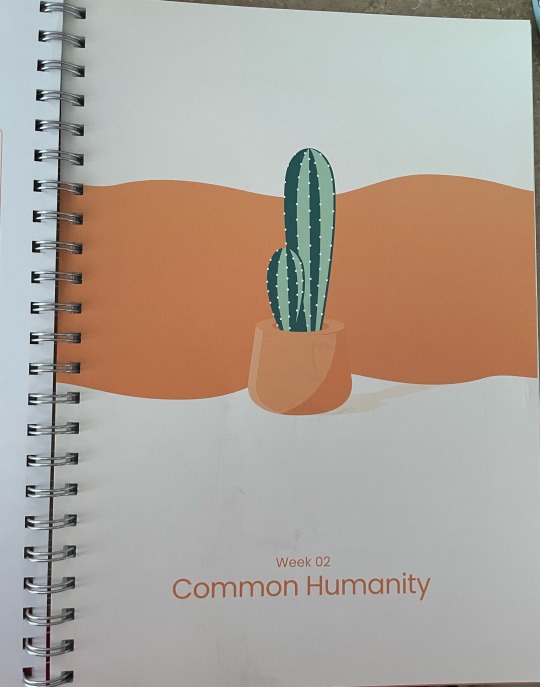
#sweethealingsoul#healing journey#self healing#self love#soul work#personal#common humanity#inevitability of imperfection#day 08
0 notes
Text
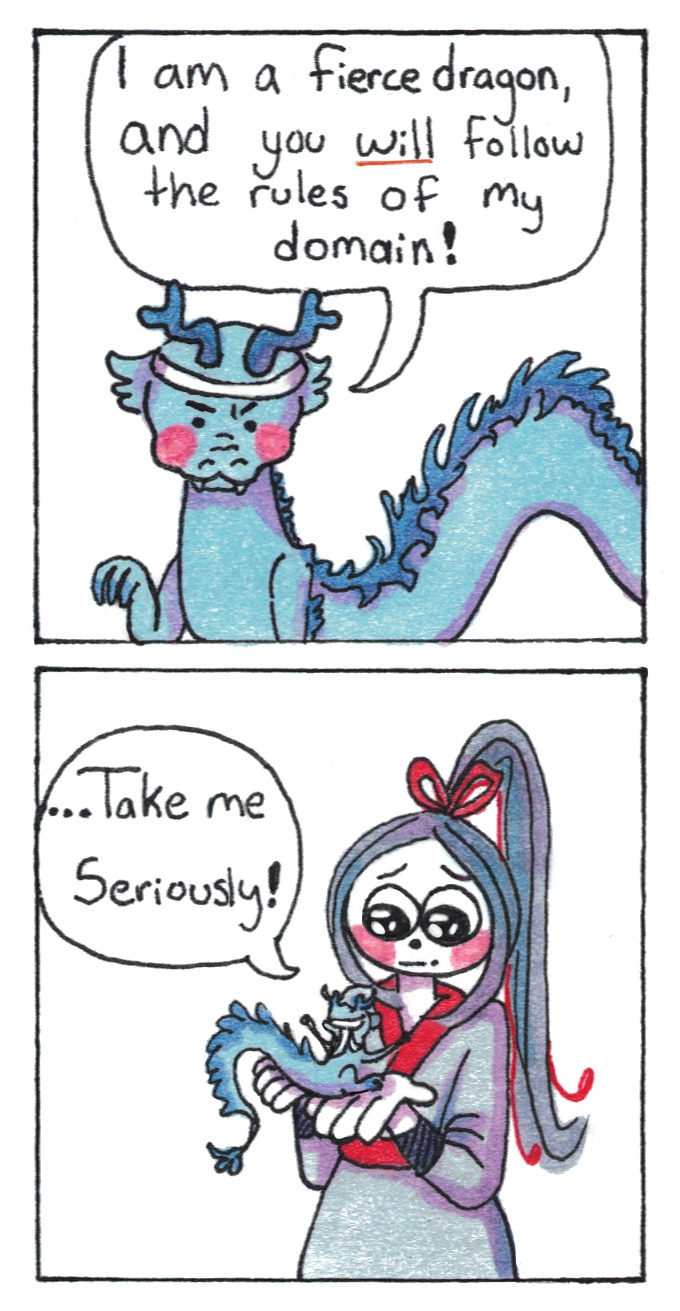
Sorry for not having a Year of the Dragon MDZS artwork; Unfortunately, I can only picture Dragon LWJ in this particular flavour.
#poorly drawn mdzs#mdzs#lan wangji#wei wuxian#Dragon AU#MDZS AU#noodleji#(IT'S A REAL TAG!!! AAH!!! THROWING MY HAT TO THE LITTLE GUY LOVERS!)#Yes I watched Fruits Basket in my teen years and yes it left a significant impression on me.#'The Dragon Transforms' and its just into a small little guy.#Even more points if the human form is a Tall Guy.#Sadly this does not appear to be a common nor popular variation so I will sit on my little hill alone. (EDIT: I WAS WRONG)#Dragon LWJ probably would be some kind of river dragon. Lesser god of a small stream.#One that grows bigger with time but always has the reputation of being benevolent and calm to those who seek its clear waters.#Do not pollute these waters or your ass is going to be bit. 1000 tiny puncture marks.#I imagine that's probably how wwx first meets him (accidently pours booze into lwj's river) (gets bit - gets bit - gets bit-)#WWX eventually befriends him through stubbornly showing up every week to give him offerings.#Takes him into town in a little pot of water to show him how the people live. Maybe go to a festival.#When the day is done and he's back in his river and alone - LWJ finally feels a new emotion...it is longing and loneliness.
1K notes
·
View notes